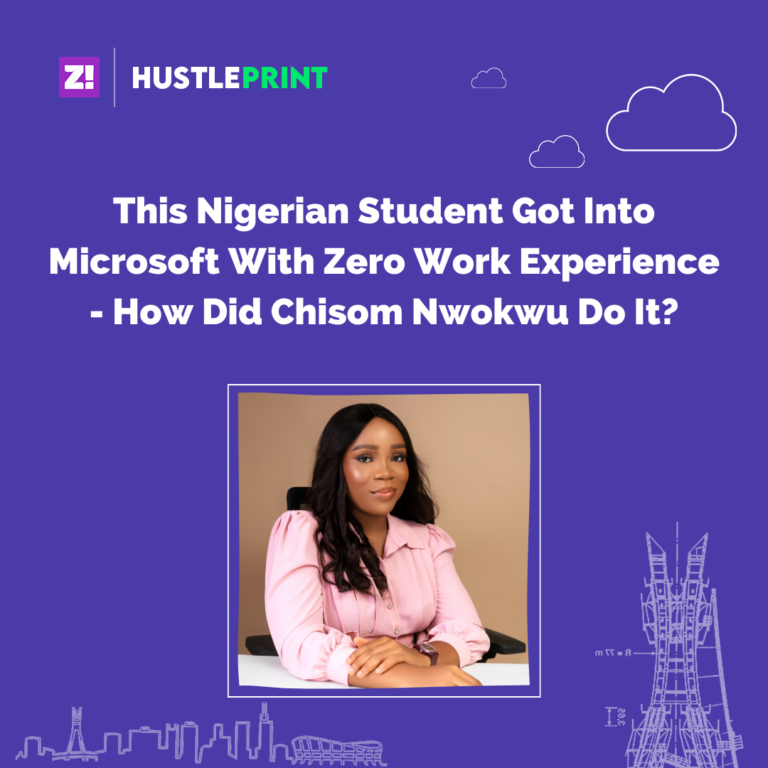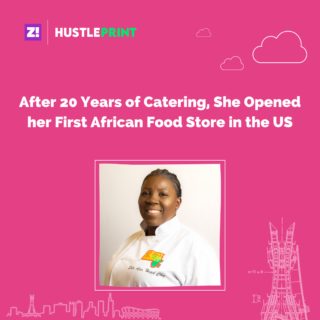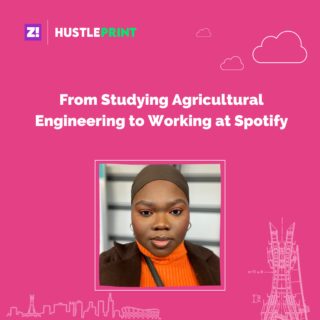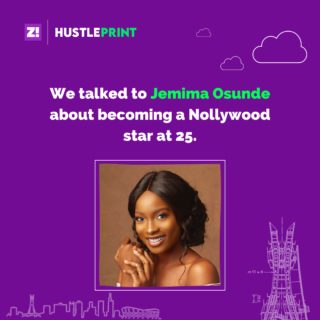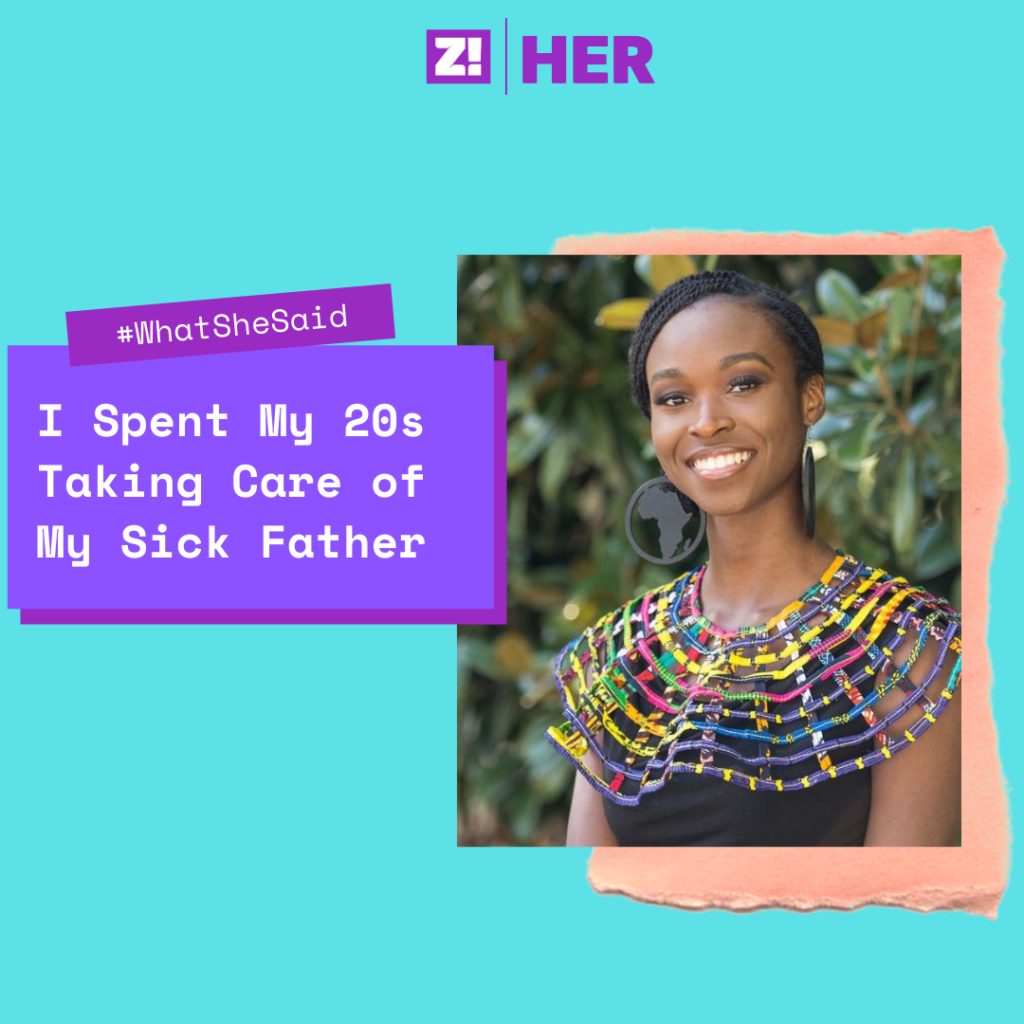
Today’s subject on #ZikokoWhatSheSaid is Samaria, a 29-year-old Liberian woman. She talks about learning to set boundaries with her mother, her amazing relationship with her father, and suddenly watching her 20s go by when he got diagnosed with Amyotrophic lateral sclerosis (ALS) in 2011.
You’re one year away from 30. What’s something you did in your 20s that you’re proud of?
Learning to take control and trust my decisions.
How did that process start for you?
It started with fear. The fear of my mother seeing her children end up like her siblings with a promiscuous past. She and my father’s goal was to instill the Christian faith in us. When the war in Liberia got worse in 2002, we moved to the United States. At that point, my mother made even firmer boundaries. It wasn’t unusual with other African kids, so I didn’t make a fuss. In America, the fear shifted to ensuring we were grounded in our culture — respect.
So when did things start to change?
When I was 16 and decided to attend an event with my boyfriend at the time — he was also Liberian. The event was in a different state and my mother was not having it, but I was stood my ground. My dad on the other hand? There was a way to wiggle around him. Honestly, I didn’t even care if they were both going to yes, I was going for that event. Till today, my mother reminds me about how that relationship yielded absolutely nothing. She’ll say “Remember that your boyfriend. Where is he now?
I swear, African mothers drink the same brand of water —
LOL. She will never let me forget it. I don’t regret it, though. It made me feel less overlooked in decisions that concerned me. I didn’t want her past experiences to keep holding me back. In that brief phase of rebellion, I’m glad I had my father. He eased up on the boundaries as I got older.
What was that relationship like?
We had the best conversations. He was a real funny guy — you could call him an OG. There was an afternoon in the car after school. We were having one of our random talks together, gisting away and laughing. In the middle of it, he turned to look at me and said, “Are there any boys interested in you?” I was 17 and had moved on from the Liberian boy, so no. Shrugging it off, his response at that moment kills me every time. “When I was your age, girls were all over me. I was handsome but nowhere as handsome as you are beautiful.” It cracked me up. My dad was everything to me.
A year later, things were different.
What happened?
He got diagnosed with ALS when I was 18. I had just finished college and was looking forward to the future when I was told my father had six months to live. My life shifted from planning my 20s to being a caregiver for my father.
I’m so sorry. How did you cope with that transition?
It was a different kind of horror. Because of the short time he had left,he couldn’t continue running his business, so my mother and I shifted to being the primary caretaker. The transition was seamless. I moved from being the baby of the house to taking the lead on making huge financial decisions and being emotional support. Talk about a plot twist.
How did that dynamic affect things with your parents?
Moving into an apartment I was paying for was the hardest part for my mother. But as my dad got worse, she had to relinquish control. We had to become teammates of sorts. She’d do the heavy lifting like bathing and clothing my father, while I handled the bills.
The toughest part was talking to friends that were moving on with life, doing everything we talked about. Exploring cities, saving up money because their parents could afford to cover the bill — everything my 20s should have been about. I loved my parents and I wanted to be there, but those were fleeting thoughts that crossed my mind. Especially when I was on the phone with my friends from college. We started at the same point, but our lives were now miles apart. Nobody could relate to my reality, not even my cousins that were the same age as me. I felt alone.
And your dad?
There were nights I sat by his side asking questions about the next step to take in life. When he eventually lost his ability to speak, I had to learn to read his eyes and spell words. It hurt to see my father gradually fade away. I missed the man he was — the man who teased me about boys just a year before. I remember travelling to Virginia for a family reunion. Usually, my dad would drive, but I had to ride with an uncle this time. After the reunion, no one was headed in my direction. My uncle needed to get to another state and it took time to figure out who would get me home. “If my dad wasn’t sick…,” I thought to myself.
I missed the stability and control I had. My friends were doing everything we had talked about at uni — travelling, experiencing life — and I felt stuck.
How did you deal with that?
Three years after my father’s diagnosis, I quit my job and applied for a Master’s degree.
Quit your job? How were you able to pay for it?
It wasn’t easy, but I needed it for me. I moved my parents to a smaller apartment. I took up part-time jobs and worked 40-hours a week to earn enough money to pay the bills. I still don’t understand how I did all that.. I knew God wanted me to complete that program because the odds were stacked against me the whole time.
So things got better?
Not exactly. I was focused on taking things one day at a time. The next goal for me was buying a house. I got another job and saved up enough money for a down payment when I was 25. Sadly, my father passed away in August 2021, three years later. I thought I wasn’t going to make it. My mother tried to console me, but the only words I could mutter were: “I can’t make it without him, I just can’t.” It was the first time I allowed myself to break down. The first time I took it all in.I had lost my best friend. I wailed like a baby.
Samaria, I’m so sorry.
Thank you. The doctors gave my father six months and he beat ALS by 11 years. I’ll never forget one of the last conversations we had. I asked him how he managed to be such a great dad and he said “I prayed to be the kind of father I needed to be for you, Samaria. I manifested it, pondered on it, and dreamed about it. I knew who I wanted to be, for you.” That’s the way I want to honour him. To give my own children the type of love he gave me.
Your dad was a real OG. How are things with your mum now?
Now that we don’t have to be partners, she’s starting to see me as just her little baby again. That’s not possible. I’ve already spent 11 years of my life making decisions for us. I hope she learns to trust that I can keep doing that. Maybe along the way, we’ll talk about how lonely it felt to take on a responsibility I wasn’t ready for after uni. The nights I stayed up worried about my next steps. For now, it’s more important for her to get through this grief. Losing a man you’ve loved for over 40 years is tough.
Tell me one thing you want to do in your 30s?
I’ll share two things. LOL.
First, I can’t wait to be Dr. Samaria after my PhD in the Hebrew bible.
Nice. And the second?
After travelling to Liberia for my father’s burial, I knew I wanted to experience more of home — family. In America, everything is a plane ride away. I miss being able to just walk down the street to see an aunt or cousin. I want to have a piece of my dad that America can’t give me. So every year, I plan on returning to Liberia for a holiday.
Even if I’m not making great money right now, I know it’s going to happen.
I love you dad, this is for you.

